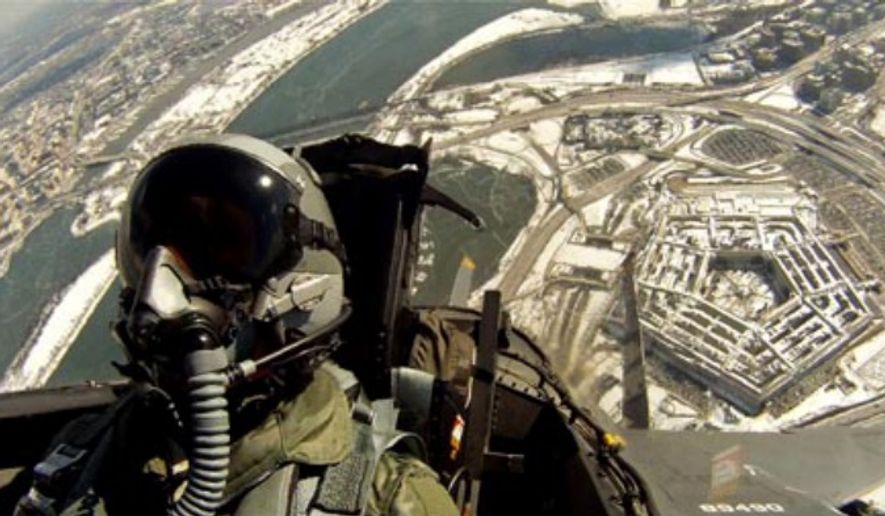Amid heightened threats around the world and Russia’s claim of a new invulnerable weapon, President Trump and Pentagon leaders on Thursday will release the first sweeping review of U.S. missile defense systems in nearly a decade.
The study, first commissioned in 2017 as part of the Trump administration’s broader national security strategy, will serve as both a review of current U.S. missile defense systems and also a blueprint for how to confront new threats, including those posed by North Korea, Iran and Russia.
The review comes as Mr. Trump is pulling the U.S. out of a decades-old nuclear treaty with Moscow on shorter-range nuclear weapons, raising fears that the two Cold War foes are positioning themselves for a 21st-century arms race.
That reality, along with the possibility of rogue nations aiming nuclear weapons at American shores, necessitated a broader look at the nation’s defenses, officials said.
“We’re expanding the scope of what we’re postured to defend against with this new review,” a senior Trump administration official told reporters Wednesday on a conference call.
Mr. Trump will speak at the Pentagon on Thursday morning and formally release the comprehensive study, the first such review since 2010.
Ahead of that speech, administration officials remained mum on many of the key details, though they did specifically say that the military is weighing a “space-based layer of sensors” capable of detecting missile launches almost instantly.
Officials also cited advances in so-called hypersonic weapons by rivals such as Russia and China as one specific area the report will address.
Defending against hypersonic missiles — which can travel roughly 1 mile per second — is a top priority inside the Pentagon and is widely viewed as one of the next great military threats facing the U.S. and its allies.
The Chinese military is actively testing and researching such weapons, and Russian President Vladimir Putin last month boasted that Moscow already has a hypersonic nuclear missile known as the Avangard that’s capable of evading any missile defense system on earth.
“The Avangard is invulnerable to intercept by any existing and prospective missile defense means of the potential adversary,” the Russian leader said.
Officials didn’t specifically mention Russia’s hypersonic capability, but stressed that the review is built on preparing the U.S. for the next generation of threats.
“The review does look at the comprehensive environment that the United States faces and our allies and partners face, and it does posture our forces to be prepared for the capabilities that currently exist and that we anticipate in the future,” an administration official said.
But that official also stressed that the review shouldn’t be viewed as provocative by either Moscow or Beijing.
“Our defense capabilities are purely defensive,” the official said. “Our missile defense capabilities are primarily postured to stay ahead of rogue state threats.”
Still, it’s clear that nuclear tensions with Moscow form the backdrop of any discussion about missile defenses.
In October, Mr. Trump announced he’d pull the U.S. out of the 1987 Intermediate-range Nuclear Forces (INF) Treaty, a Cold War-era deal that limits both the U.S. and Russia from possessing, building or deploying any missiles and launch systems with a range of between 300 and 3,400 miles.
Mr. Trump cast the decision as necessary because Moscow has already violated the agreement and the U.S. must keep pace and begin building up its own arsenal.
“Until people come to their senses, we will build it up,” the president said in October.
The oft-delayed report faces a number of significant changes since its first target release date in early 2017, including Mr. Trump’s surprise nuclear diplomacy with North Korea and the Democratic takeover of the House in November’s midterm elections.
“With new Democratic leadership in the House, the administration is likely to face much more skepticism than it did in recent years,” Stephen Young, a senior analyst with the Union of Concerned Scientists, wrote in an analysis this week. “The Pentagon should not expect blank checks … going forward.”
• Ben Wolfgang can be reached at bwolfgang@washingtontimes.com.




Please read our comment policy before commenting.